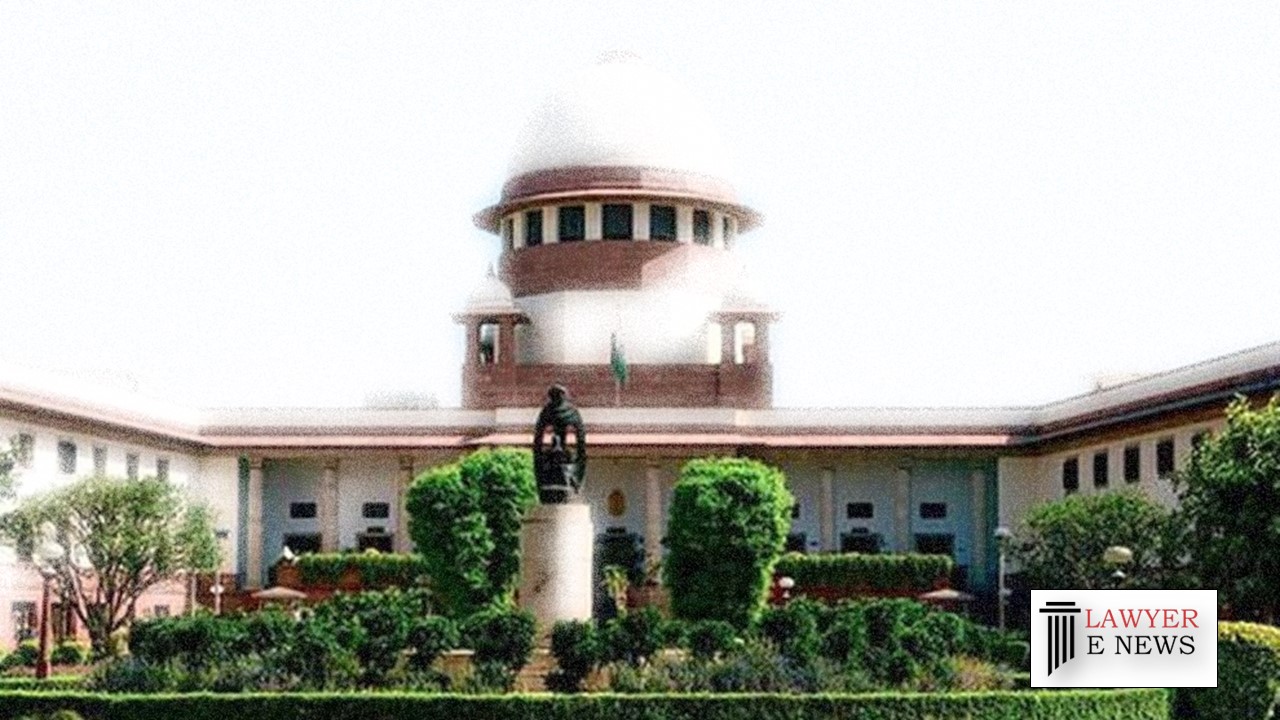-
by sayum
14 February 2026 2:22 PM



High Court's judgment reversed due to plaintiff's failure to demonstrate consistent readiness and willingness to perform contractual terms.
The Supreme Court of India has overturned a High Court judgment in a significant case involving specific performance of a contract, underscoring the necessity for plaintiffs to demonstrate consistent readiness and willingness to fulfill contractual obligations. The judgment, delivered by Justices Pamidighantam Sri Narasimha and Aravind Kumar, reinstated the trial court's decision to deny specific performance, citing the plaintiff's unexplained delay and inaction.
The respondent, Davarasety Manmadha Rao (plaintiff), filed a suit for specific performance of an agreement dated June 7, 1993, wherein the appellant, Pydi Ramana @ Ramulu (defendant), agreed to sell a property measuring 1.38 acres for Rs. 705 per cent. An advance payment of Rs. 2,005 was made, with an additional Rs. 17,000 paid on June 23, 1993. The plaintiff contended that the defendant failed to execute the sale deed within the stipulated one-year period despite several demands, leading to a legal notice on May 30, 1996, and the subsequent suit filed on June 9, 1997.
The Supreme Court emphasized that to obtain a decree for specific performance, the plaintiff must prove continuous readiness and willingness to perform the contract, as mandated by Section 16(c) of the Specific Relief Act. Justice Aravind Kumar noted, "The plaintiff's conduct, marked by a prolonged period of inaction and delay in issuing a legal notice, fails to demonstrate the necessary readiness and willingness to perform the contractual terms."
The court highlighted the plaintiff's nearly three-year delay in issuing a legal notice and the additional one-year delay in filing the suit after the notice. This delay was found to be inconsistent with the terms of the contract and indicative of a lack of interest in finalizing the deal. The trial court's findings, which were reinstated by the Supreme Court, stated, "The long unexplained silence and inaction on the part of the plaintiff disentitle him to an equitable relief."
The judgment elaborated on the legal principles governing specific performance, particularly the importance of timely action and proof of readiness and willingness. The court referenced past judgments, including Man Kaur v. Hartar Singh Sangha (2010) and Vijay Kumar v. Om Parkash (2018), to substantiate its reasoning. It was reiterated that mere filing of the suit within the limitation period is insufficient without evidence of continuous effort to perform the contract.
Justice Aravind Kumar remarked, "The trial court rightly observed that the plaintiff’s unexplained delay and lack of proactive measures to enforce the agreement reflect a failure to demonstrate the requisite readiness and willingness to perform his part of the contract."
The Supreme Court's decision underscores the critical importance of timeliness and consistent effort in contractual obligations, particularly in suits for specific performance. By reinstating the trial court's judgment, the Supreme Court has reinforced the principle that equitable relief requires more than mere compliance with statutory deadlines—it demands proactive and continuous engagement in fulfilling contractual commitments. This landmark ruling is expected to influence future cases, emphasizing the necessity for plaintiffs to diligently pursue their contractual rights.
Date of Decision: July 10, 2024
Pydi Ramana @ Ramulu vs. Davarasety Manmadha Rao
[gview file="https://lawyerenews.com/wp-content/uploads/2024/07/10-Jul-2024-PYDI-Specific-Performance-Civil.pdf"]
